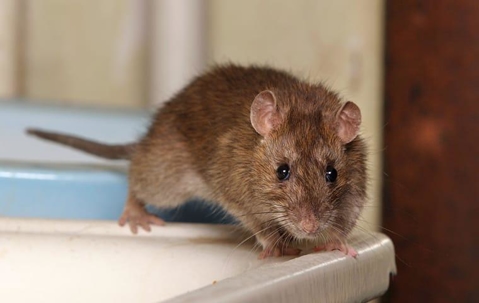No New Jersey business owner can afford to have rodent problems, but those in hospitality certainly cannot. Vermin can wreck your building’s structure, as well as individual items. They can also bring about sickness. If anyone spots a critter, they could ruin your establishment’s reputation.
Given the access to food, water, and warmth, it’s no surprise rodents are drawn to restaurants in particular. Managing them is challenging, partly because they get indoors and procreate in a hurry. Find out more about what’s at stake with these creatures and how Heritage Pest Control can intervene.
What Are The Risks of New Jersey Rodents In Restaurants?
Among the many rodent classes in the city are house mice and Norway rats. Considering how house mice are named, it’s evident that they often intrude upon human dwellings. Despite having bright tones along their abdomen, these pests have black, gray, or brown fur. In terms of size, they are 7 inches long. Keep your eyes peeled in dark spaces with low traffic, humidity, and dampness. Storage units, cabinets, and structural voids are examples. If a plot with lush vegetation is in the vicinity of your place, have a defense for rodents like house mice ready.
Norway rats are predominantly in grassy and wooded locations. When they wind up near a restaurant, they’ll be drawn to the lawn. It won’t be long before they’re digging tunnels and burrows in the soil. Once the passageways are complete, they’ll utilize them to enter your business. This process will be straightforward for them if your foundations are worn. Norway rats are 15 inches long, and they have 7-inch tails. Their brown or gray hair is unkempt.
Major signs of infestation are:
- Seeing rodents during the day; they’re nocturnal creatures
- Hearing scratching or squeaking from behind walls
- Finding footprints and fecal waste
- Noticing oily rub marks on the edges and walls
Piping, walls, and wires are just some things rodents will chew on to control their developing teeth. Their behavior can result in expensive debacles requiring repairs, such as plumbing malfunctions, cosmetic damage, and electrical outages or fires. Health complications are also associated with these vermin.
Not only can they scratch or bite folks, but they may also spread disease. You or another person could contract salmonella, hantavirus, leptospirosis, viruses, and pathogens. It would be next to impossible for any food entity to stay open for operation amid such upheaval. Mice and rats usually have contaminating bacteria and parasites in their fur. Germs are in their saliva and waste too. While they’re in gross environments, like dumpsters and sewers, they’re exposed to other microbes.
Is There A Way To Prevent New Jersey Rodents?
Do the following to deter rodents of all kinds:
- Reduce all clutter.
- Make sure food messes are addressed right away.
- Regularly clean kitchens with detail. This includes getting around appliances.
- Frequently sweep, mop, and vacuum.
- Use containers with airtight lids for food and garbage storage.
- Get rid of standing water.
- Fix moisture dysfunctions immediately.
- Seal openings in walls, windows, and doors with steel wool. Rodents can gnaw on plastic or rubber and pass small holes.
- Have doors shut when not in use.
- Wash out gutters and drains often.
- Cut the grass and trim the greenery on a routine basis. Sit plants from the property.
How Will Heritage Pest Control Handle New Jersey Rodents?
The average person will have trouble placing commercial traps and pesticides for rodents like they need to be. Our expert technicians at Heritage Pest Control won’t, and they’ll use environmentally \ friendly commercial pest control treatments designed for infestations. Shelf goods can be noxious and work short-term.

